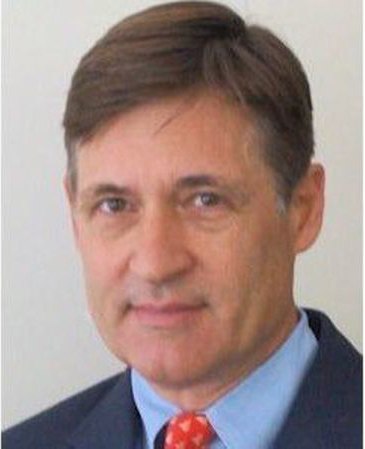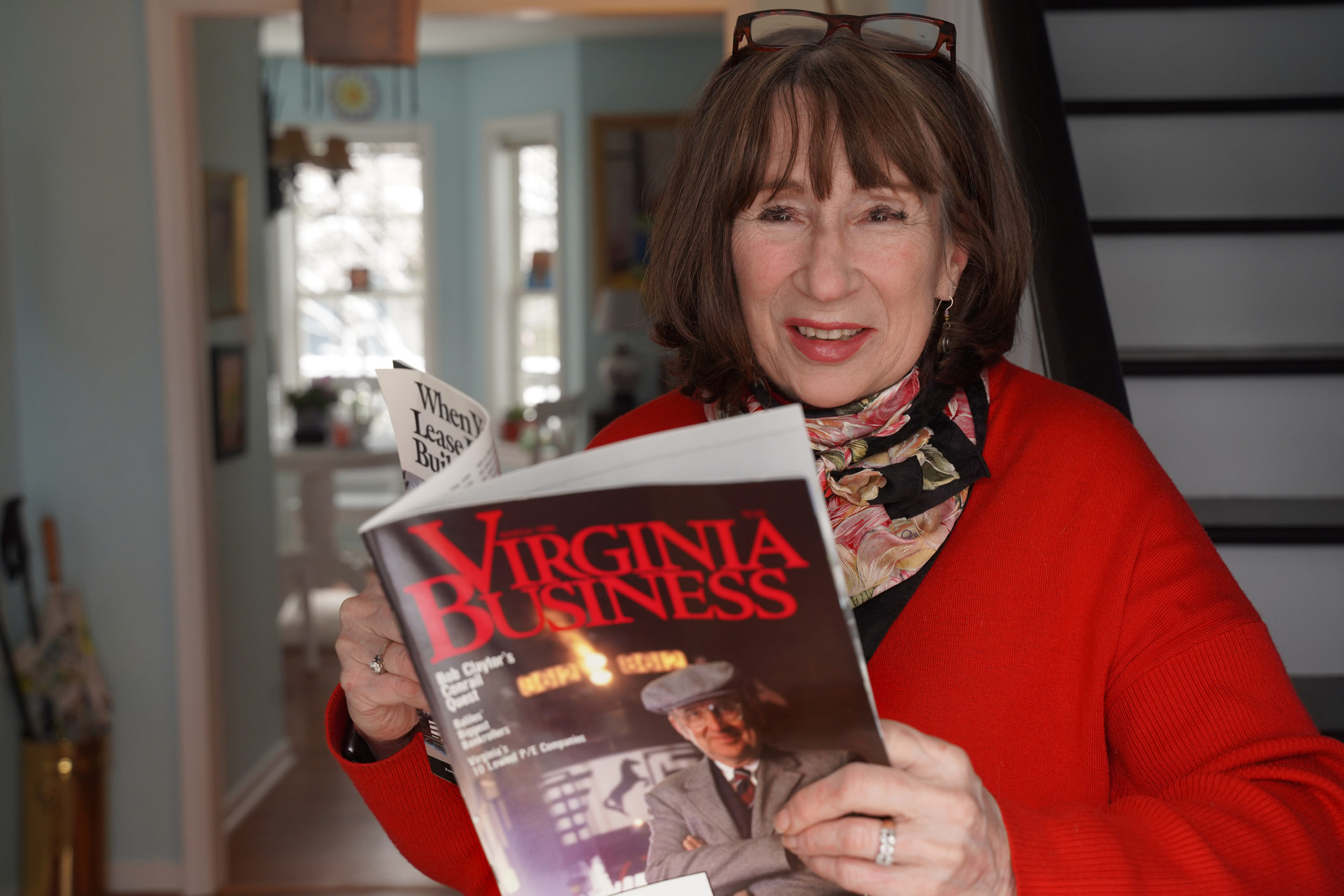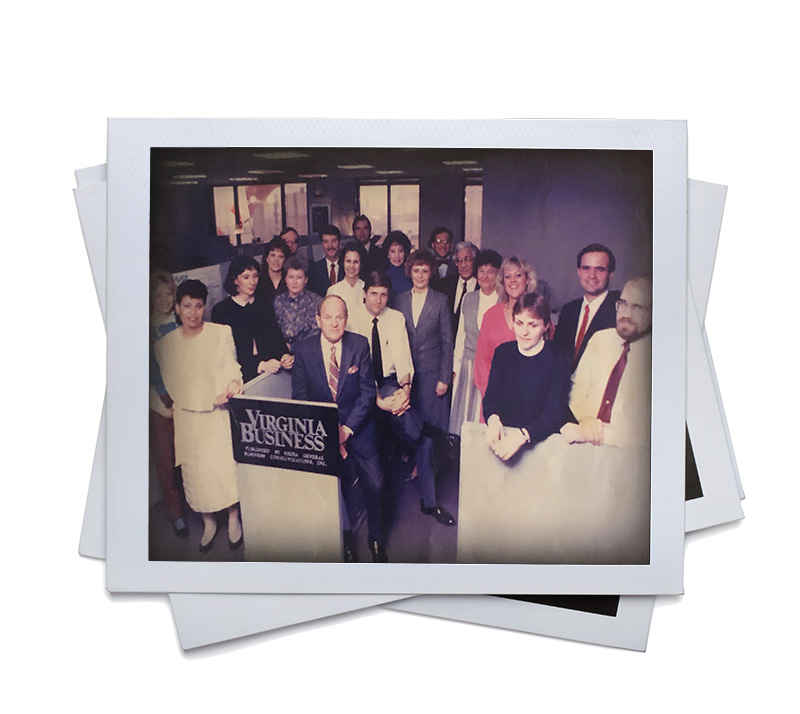After sealing the deal on Amazon.com Inc.’s $2.5 billion East Coast HQ2 headquarters as Arlington‘s economic development director in late 2018, Victor Hoskins took his talents to the Fairfax County Economic Development Authority (FCEDA) in August 2019.
But instead of competing with his Northern Virginia neighbors when he took the helm in Fairfax, Hoskins has made it his goal to bring sturdy economic development projects — as well as recovery initiatives — to the entire region.
Well before COVID-19 hit, Hoskins in 2019 started working with 10 Northern Virginia jurisdictions to forge the Northern Virginia Economic Development Alliance, aimed at promoting economic development cooperation across localities and helping the region better compete for large projects such as HQ2.
“Victor was one of the key folks who encouraged the formation of that group,” says Stephen Moret, president and CEO of the Virginia Economic Development Partnership. “Without the involvement and support of the FCEDA, it would not have been possible for the NOVA EDA to be formed.”
Since its September 2019 launch, The Alliance, as it’s now known, has not only been a beacon for future development, but has served as a job-generating machine amid the pandemic, advertising thousands of open jobs on its website and offering several job fairs highlighting top employers.
“Especially during the pandemic, his emphasis on collaboration has been essential,” Moret says.
Armed with the experience of landing some of the state’s largest-ever economic development deals and five years focused on economic development in Arlington, Hoskins approaches his job with a sense of unity for Northern Virginia and playing on each jurisdiction’s strength — all while maintaining his focus on keeping Fairfax County a major economic engine for the commonwealth. (The 2020 Fortune 500 list included 35 Virginia companies, with 11, the lion’s share, based in Fairfax County).
Although Hoskins says new economic development deals slowed down during fall 2020, he remains optimistic about the region’s resilience to both recover and expand following the COVID-19 pandemic.
Virginia Business: How have your economic development tactics and day-to-day operations changed during the pandemic?
Victor Hoskins: Probably the biggest change obviously is that we could not see our clients in the same way we could before. We had to do everything virtually. … It took us 48 hours to go from 10% telework to 100% telework. … It was really good in many ways. It accelerated our pace. We were going to go to the cloud, but we didn’t think we were going to go in two weeks. We thought it was going to be maybe two years. … The focus of our work really changed quite a bit. Unemployment shot up to 10.2%. It hadn’t been like that in Northern Virginia since the Great Recession. It was really tough on small businesses.
VB: How has FCEDA contributed to the economic recovery?
Hoskins: We’d already been working with small businesses, but we actually joined with the county to work with them even more. We really focused on businesses that have 50 employees or less. For the first time in history, the county board of supervisors put forth $52 million in grant money for businesses with 50 employees or less … [and that] served over 4,800 businesses directly.
We marketed that program for the county. They handled the part of the administration, and then really the full administration of the underwriting and all of that was done by the Community Business Partnership, which is located at George Mason University. … Because [the pandemic] particularly hit minority businesses, women-owned businesses and veteran-owned businesses, we actually focused on [those groups], and 72% of the funding went to either women-, minority- or veteran-owned businesses.
VB: How has the Alliance faced the crisis?
Hoskins: With the Alliance, something that was a nice-to-do [regional initiative] … became an essential to-do [because of] COVID. We really needed one another. We really needed mutual support. We did shared costs. We did a 12-part workshop series, the first time that 10 jurisdictions had ever cooperated on anything like that. … The first sessions really were focused on applying for [Paycheck Protection Program] money, applying for [Economic Injury Disaster Loan] money, working with the [Small Business Administration and] working with the [county] Department of Economic Initiatives. … I think that kind of [cooperation] that we had hoped for actually became something really essential. We have … directly given leads that have come to us that didn’t fit our environment to other jurisdictions where they fit better, and we didn’t do that before. … Not only do we virtually go to conferences together and not only do we provide technical assistance content for our businesses, we actually even share programs.
VB: Tell me about the launch of the Alliance.
Hoskins: We started with a digital website [novaeda.org]. Our first month, we opened up in April [2020], I think we had 300 hits, and now we [are] averaging 20,000 a month. … We do digital marketing in five major markets, including New York, San Francisco, Seattle, Los Angeles. Basically, we go after talent in those markets to draw them here and we also digitally market in the D.C. region. What we market are jobs. … When we first started … I think we might’ve had 2,000 jobs on there. We now have 87,000 jobs on that website.
VB: And the Alliance has also been sponsoring online career fairs too, correct?
Hoskins: By the end of May [2020], we did our first virtual career fair. Kids were coming out of college, a lot of them in this region, [and] we wanted them to stay. The universities wanted them to stay. I’m sure their parents wanted them to stay. … We created this virtual career fair, where we had, I think a dozen companies, they had about 3,000 job openings. That was our first one. We partnered with 30 universities, and seven of them were historically Black colleges, which was really cool. … In total, we’ve worked with 100 companies and we’ve done five [virtual job fairs]. Three we presented ourselves, two we co-sponsored, about 3,100 attendees, about 1,000 companies, over 8,500 connections. … It’s been a really, really great opportunity for people who are looking for jobs and also for the companies who need to hire. We really want to be known as the place where companies can get the talent they need.
VB: What are the top current economic development deals in Northern Virginia?
Hoskins: In the first half of [2020], we closed the Microsoft deal [with] 1,500 jobs, 400,000 square feet, [a] $63 million investment. That was a really great deal. [And then] the Aerotek deal of 1,500 jobs, the ID.me [deal with] 1,000 jobs, 37,000 square feet. Volkswagen headquarters, which was a big one in the summer, [with] 798 jobs retained and 196,000 square feet.
We had a lot of really good announcements in the beginning of the year, but by September [2020] it slowed down, and I got to tell you, the fall was really, really quiet. That is not how it normally is. Now, we hit about 11,000 jobs during that time, and that’s a lot of jobs, but the office space, the amount of space they’re taking, we can see very clearly that it’s been impacted by COVID.
VB: What is the outlook for commercial real estate in Northern Virginia?
Hoskins: The interesting thing is, we see a bifurcation of the market, the bigger companies, [like Amazon and] Microsoft, they’re going ahead and they’re making their announcements; they’re doing their thing. [However], the smaller companies that you don’t hear about, a lot of them are 50,000 square feet and below, they seem to be very hesitant about [renewing] leases. Many of them may have shared some of their lease space to lease to others on a sublet. That’s been the tough part. We’re a big office market. … We’re 119 million square feet in terms of our office market. That is the second-largest county office market in the country. We’re second only to Orange County, California, in terms of the size of our office market. That’s a big deal. Our vacancy rate is about 13.8%. It’s still healthy, but we would really prefer it at 10%, but 13.8% is not bad. …We have about 2.5 million square feet under construction. … The slowdown affects us proportionately because we have a lot of [office] space. … It’s a little different for the [rest] of Virginia because they have a more diverse [job] market. …This is a tough moment for us. That’s all I can say.
VB: Do you see your FCEDA operations returning to a pre-pandemic ‘normal’ or will the pandemic experience change how you conduct business?
Hoskins: Our office and many offices … that are our size, we’re 40-plus employees, we’re probably going to have a hybrid [work] schedule for most people. … We’re at about 10% telework [and] we may go up to 20% telework, but still have 80% in the office off and on, some people a lot, like myself, and some people may be less, people that have long commutes. … I think this actually in the long run is going to be a good thing for us and I see hybrid schedules becoming a very accepted norm, but I have to say this is difficult for me to imagine me not in an office. I miss my people; I miss the contact with them.
This is difficult when you haven’t met [an employee] in person and you’re meeting them for the first time, and you have to … [develop] team spirit, [an] esprit de corps. [We] went from monthly staff meetings to staff meetings every Monday, all of us. … We all hear the same message on Monday morning, then on Fridays, all the business investment staff, national and international business investment staff, all meet together to go over deals every week.
VB: Has the pandemic affected construction and development timelines?
Hoskins: We’ve been very fortunate: 2.5 million square feet under construction and no slowdown, not on the private side. … Big projects like Capital One, they have done an incredible job keeping their employees safe, taking temperatures and making sure that people wear masks. … They’re finishing the performing arts center, right in the middle of COVID. It’s exciting to see, but I’m sure it’s not what everyone ideally would like to have going on right now. It’s complicated. We have a couple of … 175,000-, 200,000-square-feet buildings going up at Tysons. We have some buildings being finished off in Reston right now. All of these projects are underway, and they have not stopped.
I have to say that the construction companies, the construction workers, they’re on top of it. I think that’s really a good sign, which means we’ll get through this. It’s just a little rough getting through it right now.
VB: When will lodging, retail and hospitality recover in Northern Virginia?
Hoskins: We see a recovery of office [happening] in 2022. I think we’ll be more back to close to normal, making up for a lot of what we’ve lost during this year. We’ll catch up next year. [But] for hospitality, it’s probably ’22, ’23, ’24, honestly. Really, hospitality is affected by business travel and the reduction of business travel. … Part of it’s going to be permanent because it’s so much less expensive to do certain services just virtually and then go when you have to. That doesn’t mean no business travel; that means reduced business travel. I can imagine consulting services, in particular companies like Accenture and others like that, are going to be doing less travel. That means less travel to this market and less travel from this market. Less travel to this market means less hotel rooms. … It’s [also] going to be really tough on retail and we’re expecting a 20% loss in the retail, restaurant, that whole category of small business that serves local commercial. We see that. That’s what happened last time, the last recession: 20%.
VB: What does recovery look like from an economic development perspective?
Hoskins: This region is about as resilient as you get. We had a dentist in one of our Northern Virginia jurisdictions doing 3D printing of N95 masks with a group of his friends and giving them to frontline workers, right in the middle of the pandemic. Why? Because he couldn’t serve his customers. … People are really taking advantage of all the innovation that they can. I think what you’re going to see is, we’re going to be resilient because we are. … It’s never like you think it’s going to be.
… I can tell you right now, if I think [an economic development prospect] is not serious about a conversation after July 1, when we start to think [about] traveling again, I don’t think I want to fly to their market. … I just want to have a conversation with you. “You have a general interest? Great, I’m glad you have a general interest. Let’s do it [remotely].” Do a PowerPoint deck, answer any questions they might have, invite them to come to you.
… There’s a set of questions that when we get certain answers, we know where the deal is going. When you don’t hear those answers, you’re not going to pursue that business anymore. I think that’s really figuring out what are your new filters … because you’re not going to go to every appointment in another market; you’re only going to go to the ones you need to go to.
VB: You came to FCEDA not long before COVID hit. What was that like?
Hoskins: I’ve been very fortunate to have this job. … After Amazon was over, I was looking for something interesting to do anyway. To end up in Fairfax was great. The surprise was COVID, but that would have happened anywhere. I would’ve had that challenge no matter where I went. I found it very exciting to be part of this team and that the state team that we work with is pretty amazing. [Moret] is the best in the business. I love working with him. … He came on … when we were working on Nestlé [USA]. … It was his first deal when he came to town and ever since then, I’ve just had such a great time with him. We did Amazon together. We just did the Microsoft deal … We’ve had some really good work together. I think that speaks to really what I’ve seen in all of economic development in Northern Virginia — the spirit of liking to work together. It travels throughout the state. I’m sure you feel it now.

Subscribe to Virginia Business.
Get our daily e-newsletter.









